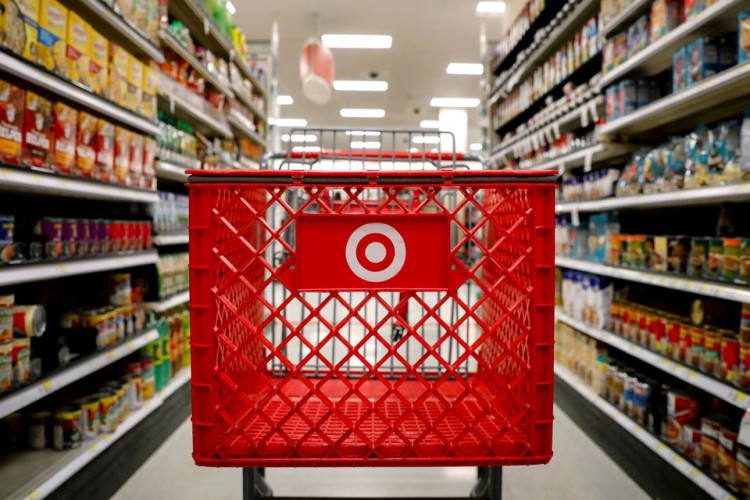Target Corp. warned Tuesday that consumer confidence is deteriorating, weighing on sales and profits as the retailer braces for the impact of newly imposed U.S. tariffs on imports from Mexico and Canada. The company reported weaker-than-expected February sales and projected only 1% growth for the year, underscoring broader concerns about the health of U.S. consumers and the economy.
February sales were "soft" due in part to cold weather affecting apparel purchases, but broader economic worries also played a role, Target Chief Financial Officer Jim Lee said in a statement. "Declining consumer confidence impacted our discretionary assortment overall," he noted, adding that shoppers have pulled back on non-essential purchases.
The results come as other major retailers, including Walmart, have also warned that 2025 will be a more challenging year. Consumer confidence in February saw its steepest monthly drop since 2021, amid persistent inflation concerns and trade tensions that escalated Tuesday when President Donald Trump's 25% tariffs on Mexican and Canadian imports went into effect. Trump also raised tariffs on Chinese goods from 10% to 20%.
Target CEO Brian Cornell told CNBC that the tariffs on Mexico, in particular, will likely lead to higher grocery prices almost immediately. "Those are categories where we'll try to protect pricing, but the consumer will likely see price increases over the next couple of days," Cornell said, citing fruits and vegetables such as bananas, strawberries, and avocados that are heavily sourced from Mexico.
Despite the warning signs, Target's stock edged up slightly in premarket trading as some investors had anticipated even weaker results. The company posted fourth-quarter earnings per share of $2.41, beating Wall Street's expectation of $2.26. Revenue came in at $30.92 billion, slightly above the projected $30.82 billion, though down about 3% from a year earlier due to an extra reporting week in the prior period.
While earnings exceeded expectations, Target's cautious guidance for the first quarter sent shares tumbling nearly 5% in early trading. The retailer declined to provide a specific profit outlook but said it expects a "meaningful year-over-year profit pressure" in the first quarter, compared with analysts' estimates of a slight increase.
Beyond economic concerns, Target is also facing backlash over its recent decision to scale back diversity, equity, and inclusion (DEI) initiatives. The company recently eliminated hiring goals for minority employees and dissolved an executive committee focused on racial justice. In response, Rev. Jamal Bryant of New Birth Missionary Baptist Church in Georgia has called for 100,000 people to participate in a 40-day boycott of Target, urging them to shop at Black-owned businesses instead.
There are indications that the controversy may be affecting store traffic. Data from Placer.ai, which tracks foot traffic via phone location data, showed that visits to Target stores fell 7.9% in the week of February 17, compared with a 5.2% drop at Walmart. Costco, which has maintained its DEI policies, saw traffic increase 4.8% in the same period.




